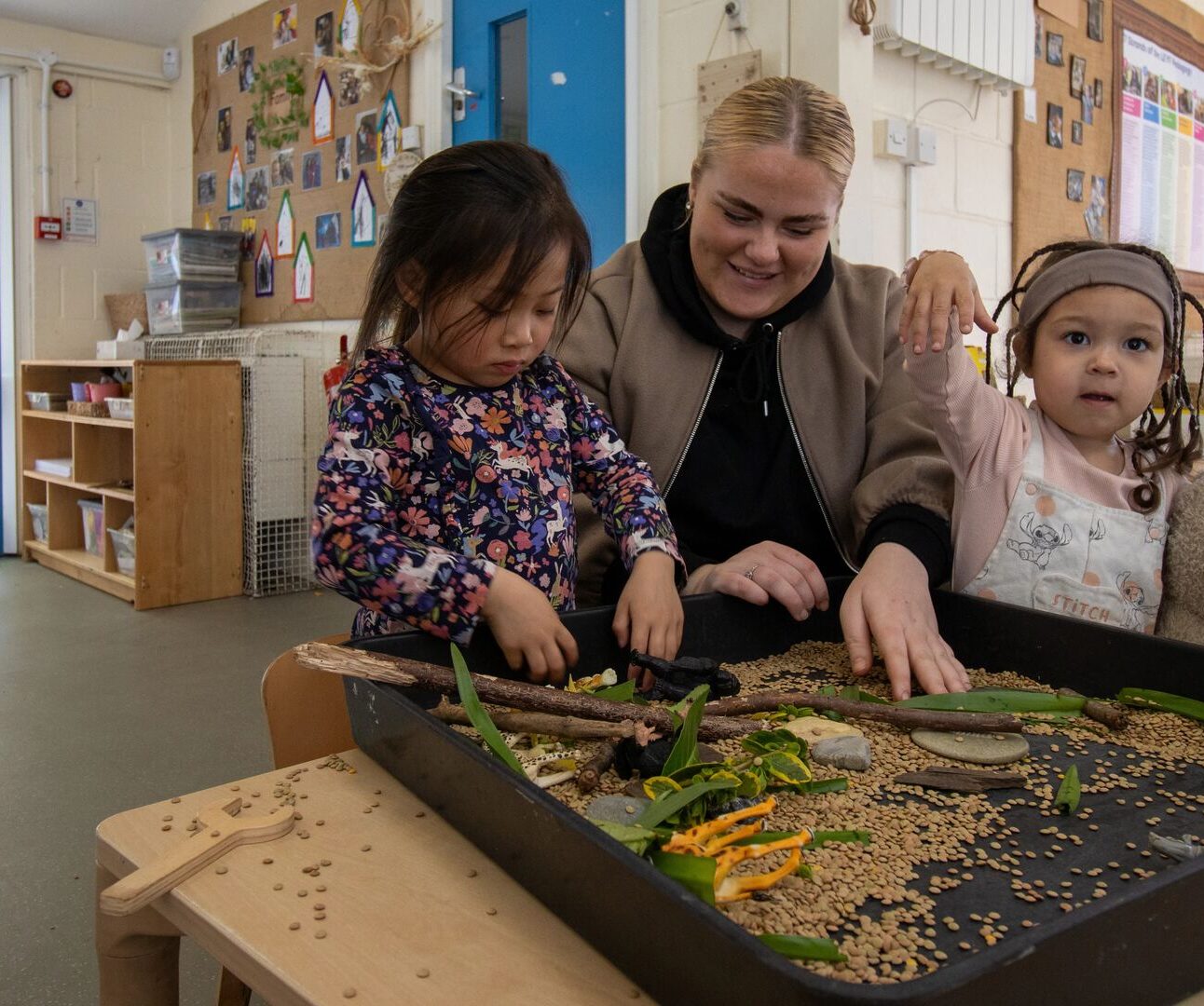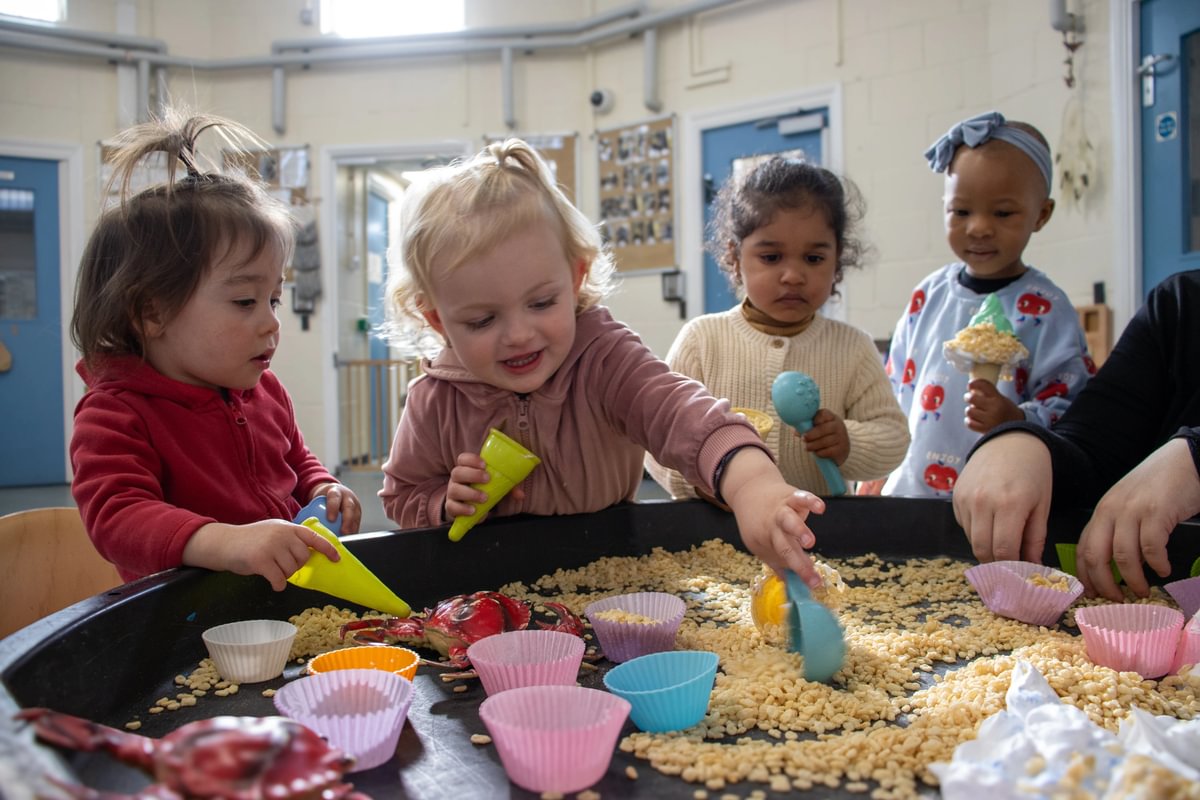
D is for Disadvantaged: What Does that Mean?
“Disadvantage” is one of those terms we bandy about in policy papers and conference keynotes, but what do we mean by it? Do we understand the lived reality behind the…
March 9th 2018
We all assume that everyone will learn to talk. It’s part of being human but actually there are levels of success when it comes to language. We can all learn to speak but the quality and range of vocabulary makes a substantial difference to long term educational success.
When I was figuring out the LEYF pedagogy, I wanted to know if there was a particular secret sauce for educational success because that would be central to our pedagogy. That way we could make sure our approach would help give children from poor and disadvantaged backgrounds an educational leg up. What we found after much research (starting with the work of Bourdieu from the 1970s) was a strong well-researched link to language.
The ICAN (2014) report confirmed that by 22 months a child’s language can predict outcomes at 26 years and by age three to six, a child’s narrative skills are a powerful predictor of literacy skills at eight to 12 years, something also noted in the Frank Field 2010 report. The 30 Million Word Gap report from Hart and Risley (2003) found that the language heard by poorer children compared to their more privileged peers could amount to a gap of 30 million words by the time the children had reached three years. The most concerning aspect of their findings was that the gap was difficult to close, leaving children at a long-term disadvantage in education and many children from the same socio-economic background two years behind their peers at GCSE level.
However, what was important was not just the language and vocabulary but the type of words and sentences construction. It needed to be complex – long words, correct sentence structure, multisyllabic words and taking time to listen and allow the child to learn to correct their sentences. Bernstein (1973) found that children who have a grasp of formal language, rather than being restricted to informal language, were at an enormous advantage in the education system. This was, in effect, the distinction between the ‘restricted code’ which is accessible to both the working and the middle class (and which is characterised by a low level of vocabulary and limited syntactic variety) and the ‘elaborated code’which belongs to the educated classes, and which has a flexibility which facilitates the expression of analytical and abstract ideas and arguments. In other words, enriched language, correctly constructed was critical to poor children and could help reduce the educational achievement gap.
At LEYF this translated into a pedagogical ambition that puts language and literacy at the heart of our delivery. It must be so heavily language and literacy rich that droplets of gold fall from every interaction. Translated, that means staff also need to wallow in luscious language and build a language home learning bridge to and with parents. I am strict with staff about this. No sloppy vernacular, lots of words to describe things. If you can say “nice”, you can say, “beautiful”, “wonderful”, “glorious”, “pleasant”, “good” and “delightful”. It’s the same when introducing dinosaurs, they are not one but range from stegosaurus to halszkaraptor. Remember that a child needs to hear a word 20 times before it becomes a part of their vocabulary. We also need to frame the sentence correctly, so as I often say to the staff – accents don’t matter but correct sentences do! We have our mantra:
Two words together at two, 100 at three and fluent at four.
Conversations also matter. Great dialogue supported by our daily usage of Makaton is key. How better to extend children and adults but through great pedagogical conversations; a method of teaching and communication with which staff are very comfortable. A good conversation will include context, nuance, explanation, information, narration, coaxing, suggestions, encouragement, demonstration assistance and warmth. At LEYF we ensure conversations become pedagogical by including the explanatory links of “because” and “so” – thereby creating a mutual learning opportunity by opening up the conversational language.
Without conversation …the human soul is bereft. It is almost as important as food, drink, love, exercise. It is one of the great human needs. If deprived of it, we die’. Educators able to initiate and sustain such dialogue require special talents, wisdom, confidence and rich education, in the best sense of the word.
Zeldin [128]
Working with children is a service often only recognised by parents. But everyone in our society needs to understand this as it really does take a village to raise a child. Understanding the importance of language is a very good start and as Marks and Spencer’s would say it’s not just any chocolate pudding nor is it any old language!

“Disadvantage” is one of those terms we bandy about in policy papers and conference keynotes, but what do we mean by it? Do we understand the lived reality behind the…

Talking Early Years: June O’Sullivan and Sue Egersdorff The world is changing fast. Technology is accelerating how we live, work and even care, but in that rush, you…

On the 7th April, we held the London OBC and here is a summary for those of you who could not attend. We are trying something new,…